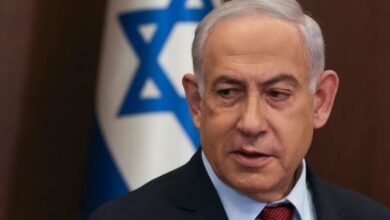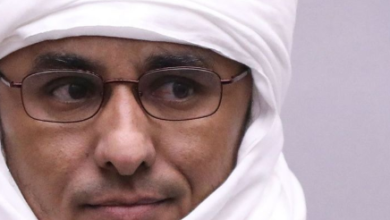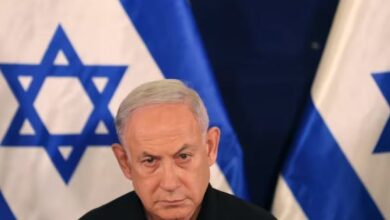Kosovo expands timeline for Serbs to comply with car plates

PRISTINA, Kosovo — Kosovo’s authorities have apparently bowed to international pressure and softened their decision to ban illegal vehicle license plates, a move that could avoid riots by minority Serbs over the issue.
Following a meeting Friday with ambassadors from the U.S. and four European countries — France, Germany, Italy and the United Kingdom — before the Cabinet meeting, Prime Minister Albin Kurti said authorities decided it was “better” to offer other facilitating opportunities.
For the first three weeks in November, those owing vehicles with illegal number plates will only be rebuked or warned. For the next two months they will be fined, and for three other months until April 21, they will drive only with replaced local plates, the prime minister said.
U.S. Department of State spokesman Ned Price said that “an extension of the (license plates) timeline is in the interest of making progress on the EU-facilitated dialogue to normalize Kosovo-Serbia relations.”
In August, the government in Pristina decided to postpone to Nov. 1 the decision to require vehicles holding old or Serbian number plates to replace them with Kosovar ones. That also meant that vehicles entering from Serbia had to replace Serbian license plates with Kosovo ones.
For the past 11 years, the reverse was required by Serbia for vehicles coming in from Kosovo.
Trouble brewed this summer over Serbia’s and Kosovo’s refusal to recognize each other’s identity documents and vehicle license plates. Kosovo Serbs in the north put up roadblocks, sounded air raid sirens and fired guns into the air.
In August, EU and U.S. envoys negotiated a solution to the travel documents problem, allowing the situation to calm down.
The European Union has told Kosovo and Serbia that they must normalize ties if they want to advance toward membership in the 27-nation bloc. Brussels and Washington recently have stepped up mediation efforts, fearing uncertainties over the war in Ukraine and Serbia’s close ties with Russia could aggravate matters.
Kosovo’s 2008 independence has been recognized by Washington and most EU countries, while Serbia has relied on support from Moscow and China for its bid to retain the former province. Belgrade lost control over Kosovo in 1999 after NATO bombed the country to stop its brutal crackdown against ethnic Albanian separatist rebels.
NATO peacekeepers say they are ready to keep the country’s situation calm, especially in northern Kosovo where most ethnic Serbs live.
Source link





